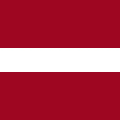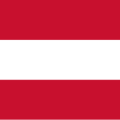Travel

Explore the World with Confidence: Travel Abroad
Planning to study in Europe involves a few key steps to ensure a smooth transition. Start by researching universities that offer strong programs in your field of interest. Utilize resources like QS World University Rankings to compare institutions. Next, review the admission requirements for each university, including academic qualifications, language proficiency, and standardized tests. Collect the necessary documents, such as transcripts and recommendation letters. Financial planning is crucial, so explore scholarships and grants, including options like Erasmus+ or university-specific awards. Once you have your finances in order, focus on visa requirements for your chosen country, and begin the application process early to avoid any last-minute issues. Finally, familiarize yourself with the culture, language, and living conditions of your host country to ease your adjustment. Many universities offer orientation programs to help international students settle in, making your transition smoother.
List of European Countries
- Russia
- Germany
- United Kingdom
- France
- Italy
- Spain
- Poland
- Ukraine
- Romania
- Netherlands
- Belgium
- Czech Republic
- Sweden
- Portugal
- Greece
- Hungary
- Austria
- Belarus
- Switzerland
- Bulgaria
- Serbia
- Denmark
- Finland
- Norway
- Slovakia
- Ireland
- Croatia
- Bosnia
- Herzegovina
- Moldova
- Lithuania
- Albania
- Slovenia
- Latvia
- North Macedonia
- Estonia
- Luxembourg
- Montenegro
- Malta
- Iceland
- Andorra
- Liechtenstein
- Monaco
- San Marino
- Holy See
GET IN TOUCH
Talk to our Experts
080 4223 4445
99450 01882
Support
Monday to Saturday 9am to 8pm

GERMANY

LATVIA

DENMARK

SWEDAN

POLAND

ICELAND

BELGIUM

AUSTRIA

GREECE

HUNGARY

NETHERLAND

ITALY

SLOVENIA

SPAIN

